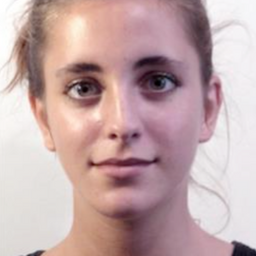Creative clusters in China : from artists villages to the leisure city
Mon statut pour la session
Quoi:
Paper
Quand:
9:30 AM, Mercredi 31 Août 2022
(20 minutes)
Où:
UQAM, pavillon J.-A. De Sève (DS)
- DS-1540
Renovating and enhancing industrial sites in the context of Olympic Games is a way of showing the full integration of such sites to the neoliberal dynamic, as well as the soft-power and promotion of culture and creativity at an international level. As Shougang Industry Park is one of the main projects for the 2022 Winter Olympics in Beijing, the study of Chinese industrial sites converted in creative clusters might highlight evolutions and dynamics of industrial heritage conservation in China, and how it is integrated in the organization of a mega-event. The aim of this paper, based on field work and qualitative research, is to focus on two case studies that launched the development of creative clusters in former industrial sites in China, in order to compare the possible influences on the rehabilitation of the Shougang Industry Park for the 2022 Winter Olympics. The idea is to address the use of industrial heritage in the development of the creative economy, as a way to operate a
transition from industrial growth to tertiary growth, from M50 and 798 Art Zone to Shougang’s creative park.
M50 (Shanghai) and 798 Art Zone (Beijing) are two examples of industrial heritage sites converted into creative clusters following a bottom-up approach in the early 2000s, with the constitution of the artistic community around their function and preservation. As experiments of renovation of industrial sites, 798 Art Zone and M50 also saw the development of users opposition to real estate development project from institutional actors, in order to fight for valorization and preservation of these spaces rather than destruction or replacement, which progressively led to their development, recognition, and to the promotion of the Chinese contemporary art on the international scene.
Now these sites are fully integrated in urban development policies, that include institutionalization and public subvention in exchange of reinforced surveillance of the sites, place branding and promotion (as touristic sites for example), within the shift process from industrial production to tertiary economy. Changing the function of an industrial site into a leisure and consumption space is highly symbolic in that sense. This strategy has been incorporated into top-down redevelopment projects, especially with the organization of the 2022 Winter Olympic Games in Beijing, which adds a spectacular dimension to urban redevelopment goals.
Indeed, the current rehabilitation of the Shougang Industry Park into a leisure park comes as one of the major projects of the Winter Olympics. The idea behind the objective of enhancing such a major industrial heritage site, is to show how Chinese urban development integrates current international trends on heritage conservation, aesthetics, as well as the multifunctional way of rethinking the contemporary city, but this time with a top-down approach and a fully assumed growth goal. It highlights the ability of public authorities and private actors to develop such a site at the global level. Furthermore, Shougang is placed at the exact opposite of 798 Art Zone, within the city of Beijing, which is also symbolic : the new renovated space comes competing with the ancient artists village, the ancient artists villages versus the future international leisure creative park.
What remains from the example of the 798 Art Zone into the Shougang redevelopment project ? What is the influence ? What are the strategies to renovate industrial heritage in order to integrate it to the cultural economy ? What is the Shougang project regarding social needs, and what will be the legacy of this area (in terms of use, social mixité) ? What does the context of the Olympic Games change in industrial sites renovation (political tools, investment, place branding) ?
